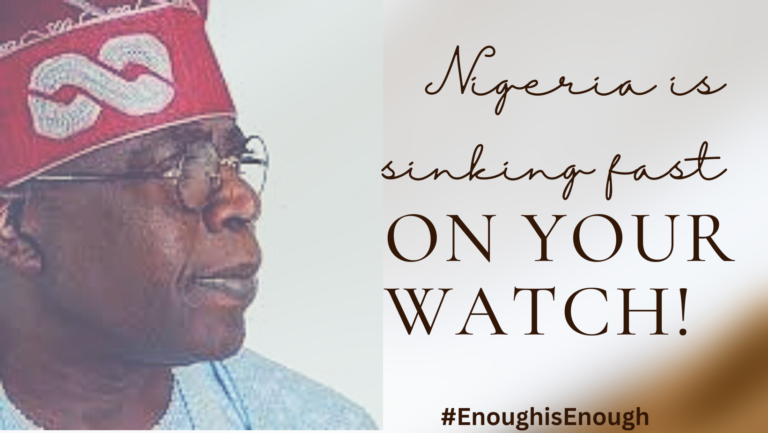GOOD GOVERNANCE IN NIGERIA: a search for the impossible
Nigeria is a country with great potential. But, these potentials have been punctured by a myriad of problems. These problems are not caused by a lack of resources but by bad governance shown by the ruling bodies. And this has hindered the developmental drive of the country.
What is Good Governance?
Governance is the process by which power is exercised in the management of a country’s economic and social resources for its development. It is the process of decision-making and the process by which such decisions are implemented.
Good governance is a process of measuring how public institutions carry out the affairs of the public and manage its resources. The United Nations Development Programme (UNDP, 2007) see governance as the exercise of power through a country’s economic, social, and political institutions in which institutions represent the organizational rules and routines, formal laws, and informal norms that together shape the incentives of public policy-makers, overseers, and providers of public services.
Good leadership and governance go hand in hand and work together to bring about all forms of development. Good leadership is concerned with fostering positive change. Both concepts bring positive change for the good of the masses, based on acceptable values to attain a society with governance that is participatory, accountable, transparent, efficient and effective and above all, based on the rule of law. Good governance entails the establishment of a representative and accountable form of government. Good governance requires policies to promote broad-based economic growth, a dynamic private sector and social policies that will lead to poverty reduction.
Factors of good governance
There are so many factors to consider when assessing the governance of public institutions and governing bodies. These factors are the catalyst for the realization of enhanced performance of government agencies for the development of the society. Such factors include accountability, transparency, regulatory reforms, effectiveness and efficiency, equity, rule of law, effective service delivery and participation. In Nigeria, good governance should be measured by the provision of basic social amenities, employment opportunities, good roads, adequate security, and poverty alleviation.
Accountability
This is the ability of the citizens, civil society and the private sector to access and analyze the activities of public institutions and government to hold them accountable. Accountability is the life wire of any nation if it to be considered developed. It modifies the actions and decisions taken by the governing bodies.
Transparency
When the activities of the government is transparent, it becomes freely accessible and available in an understandable form to the citizens of the country. This brings about openness, truth, and straightforwardness in the running of governmental affairs.
Trust
When the public institutions and governing bodies become accountable and transparent in the affairs of the government, the citizens, civil society and private sector will trust their activities.
Participation
Every citizen should take an active part in the decision making of any government institutions that represent their interest. This concept is known as civic engagement and is one of the programs of SEVICS. The participation needs to be informed and organized, including freedom of expression and assiduous concern for the best interests of the organization and society at large.
Rule of Law
The legal framework should be fair and enforced without any form of partiality. The rule of law should be enforced by an impartial regulatory institution, for the full protection of its stakeholders.
Effectiveness & Efficiency
Good governance ensures that the procedures implemented by all Ministries, Departments, and Agencies (MDAs), produce favorable results which meet the needs of its stakeholders. Government institutions should produce results that meet needs while making the best use of the resources.
Effective Service Delivery
There should be access to basic services such as education, primary health care facilities, electricity, etc as they are the prerequisites for effective development. Basic amenities are the bedrock on which all-round development can be built.
Credible Elections
Elections should be free and fair and not based on appointment by the elites in the society. When government officials are not appointed based on the will of the people but the will of their “GODFATHERS”, it promotes the selfish motives and interest of the “GODFATHERS” and not the needs of the citizenry.
CHALLENGES MILITATING GOOD GOVERNANCE
There are various challenges that face the good governance in Nigeria. They include the following:
Corruption
Corruption as dishonest or illegal behavior especially of people in authority. is the major challenge faced by public institutions and different governing bodies in the society. Corruption is the violation of established rules for personal gain. Corruption is described as efforts to secure wealth or power through illegal means for private gain at public expense; or a misuse of public power for private benefit. In Nigeria, the forms of corruption include bribery, embezzlement of funds, payoffs, etc. The majority of officials in the governmental agencies engage in corrupt practices such as embezzling funds meant to be used to provide the basic social amenities in the society, collecting of bribes in the office, roadblock by the police to extort money from commercial drivers and so much more.
Management of Public Funds
Because appointment is not based on the merit and required qualification but on favoritism and its vices, there is a lack of efficiency and effectiveness in service delivery. This is because the resources provided are not properly utilized. Rather they are used to provide weapons and ammunition for suppressing political opponents and other persons of divergent views.
Politics of Godfatherism
Godfatherism in Nigeria has become a thing of concern to the society. The godfathers are the wealthy elites mostly those who held a political position in the past, they anoint their preferred candidate, who they believe can hold a political position while protecting their interests in the society. Most of the godfathers have converted politics from a social engagement to an enterprise where they make more money. The godchildren are not answerable to the society but to the whims and manipulations of the godfathers.
Policy Inconsistency
Government instability, policy inconsistency, and over-reliance on foreign ideas to tackle domestic problems are a bane of effective governance in Nigeria. Leaders hardly sustain policies and programs of their predecessor and this brings about uncompleted or abandoned projects littered over the country.
Prospects of Good Governance
The challenges facing good governance in Nigeria have been analyzed and the following situations can be employed to ensure good governance and development in the society. They are:
Disincentivize Political Offices
Political offices should be made less attractive so the money-conscious politicians are not enticed. Therefore available opportunities are taken up by people who are genuinely concerned about rendering services to the people. The background of prospective political office holders should be screened as a way of bringing about possible reduction in government.
Punish corruption
Corrupt practices by government officials should attract some great punishments. Penalties for unethical practices or behavior should be enforced severely, so as to serve as a deterrent against future occurrence. The legal frameworks dealing with issues of corruption and bad governance should be redesigned to deal with all defaulters irrespective of status or position. Agencies charged with the duty of prosecuting corruption cases such as the EFCC and ICPC must be empowered to work without undue external influence.
Meaningful appointments
Appointment into the public offices should be transparent, based on merit and qualifications and not biased. The federal government should not create a situation where the offices in the governmental agencies are seen as a platform for rewarding relatives, friends and political associates in terms of appointment.
True Independence
Governmental agencies that are independent bodies such as the Independent National Electoral Commission (INEC) and the Nigerian Judiciary should maintain their independence in structure, appointments, and functions. This can be achieved through the amendment of the constitution to ensure that no single arm of government has a monopoly over such appointments. This must also reflect in the way, these appointees are removed from office. No single arm of the government should have the power to remove principals of independent agencies from office.
Immunity from Criminal Prosecution
Constitutional provisions that relate to and support the immunity clause should be revisited. As such, public office holders can be tried while still in office and removed if found wanting. It is wrong to protect criminal elements in government from trial simply because of the position they occupy. There should be no sacred cows in government. Nigerian voters should only vote for candidates with a good record of integrity, good principles, and a proven impeccable character.
National Orientation
There should orientation and re-orientation of leaders and followers on a continuous basis. Values and practices should be internalized in the country by all citizens. This can be achieved through promoting movies, music and other group activities like sports that bring people together. There could be seminars on interest topics that will bring about development to the country. Agencies like the National Orientation Agency, the Federal Radio Corporation of Nigeria and the Federal Ministry of Information should lead this process.
Conclusion
This article examined the concept, challenges, and prospects of good governance in Nigeria. It also shows that, for a country to be considered a developed country, certain factors such as accountability transparency, responsiveness, equity and so much more are noticeable in the governance of the country. It is also obvious that nonadherence of these causes disunity and lack of cooperation between the citizens and the governing bodies.
In order to bring about development through good governance and curtail corruption and its vices, some solutions must be introduced urgently.
With effective leadership and the minimization of corruption as well as good governance, Nigeria will be able to perform its functions such as; provision of housing, healthcare, security, job creation, education and so much more.



